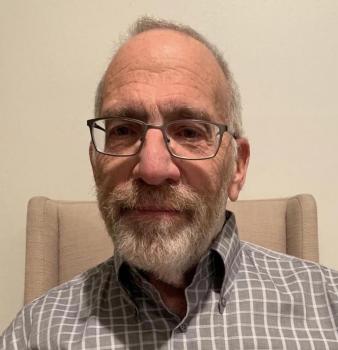Dr. Kaplan on How COVID Impacted Climate Change and Fossil Fuel Consumption

By Katherine Haines ’21, ’22
The shift to remote work and school in 2020 due to the COVID pandemic led to significant changes in most people’s everyday routines. There were shortages at grocery stores, cancellations of trips and events, and an influx of information from the scientific community about illness symptoms and deaths. What may not have been as apparent was the effect the pandemic had on the use of fossil fuels.
Fossil fuel usage has increased by eight times since 1950 and doubled since 1980. Without major changes, the global temperature is estimated to rise up to 8 degrees Fahrenheit by the year 2100.
“Fossil fuel use and carbon dioxide emissions were all going up around the world, but in 2020, when the world basically shut down, fossil fuel use in transportation was reduced,” said Adjunct Professor of Biology Dr. Richard Kaplan. “Industry was also reducing its output and people weren’t driving, and so fossil fuel emissions went down about 6.2 percent, which is rather significant. But of course, this year they’re back up to the rate of rise that they were before.”
As more data comes in about fossil fuel and energy use from 2020, the U.S. Energy Information Association now reports that the amount of consumption of fossil fuels in the U.S. fell by 9 percent. This makes 2020 the year of the lowest fossil fuel consumption in about 30 years.
While widespread shutdowns are not feasible in most cases, the major shift to working and learning from home, less travel, and less industry production demonstrates that lowering fossil fuel consumption and carbon emissions are within the reach of humans across the world.
“What last year showed is that we can clean up our air and greenhouse gas emissions if we stop emitting so much,” said Dr. Kaplan. “We need to move forward with replacing fossil fuels, and there are some who think that is possible by 2050.”
The pandemic also demonstrated the direct effects climate change can have on human health; Dr. Kaplan points to a number of studies that show that air pollution and warming have made COVID death rates and illness higher.
A 2020 study published at Harvard University shows a statistical link between COVID deaths and other diseases with long-term exposure to fine particulate matter—a form of air pollution. The study suggests that if Manhattan had lowered its average particulate matter level by just a single unit over the last 20 years, the borough would have seen 248 fewer COVID deaths by the fall of 2020.
Dr. Kaplan bristles at the suggestion that supporting the environment and supporting the economy are clashing ideas. The shift to a more healthy world can create several jobs and businesses to replace the perhaps antiquated fossil fuel industry.
“We need to find ways to heal some of the divisions between people to bring those opposed to economic and environmental ideas back together,” said Dr. Kaplan. “Climate change is real and it’s damaging and it’s our fault, and therefore we need to take steps to mitigate against all those things rather dramatically.”
Dr. Kaplan teaches Biology and University Seminars at Arcadia University focusing on the environment. Courses such as Environmental Science and Policy and Climate Change: Science and Policy highlight how his previous work in the pharmaceutical industry opened his eyes to the importance of effective environmental policies and combating climate change.


